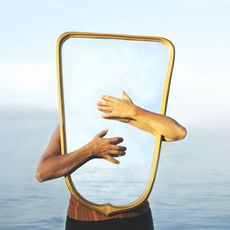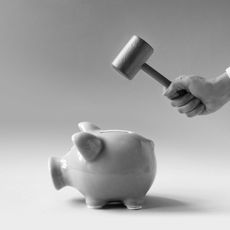Doctors sound off on the benefits and drawbacks of skipping your period.
Though all hormonal contraceptives can be used to allow a woman to have fewer periods per year, new oral contraceptives such as Seasonale and Seasonique (which let you have periods just four times a year) and vaginal inserts like NuvaRing are marketed for that purpose. If you use them, are you missing something important? Doctors sound off.
"KEEP YOUR PERIOD!"
"Your menstrual cycle is a vital sign, and you should not suppress it simply because you find it bothersome. Having a period can tell you a lot about how your body is functioning," says Nancy Reame, Ph.D., director of the Doctor of Nursing Science Program at Columbia University and member of the Society for Menstrual Cycle Research. "Having an irregular period might be a sign that you are engaging in risky behavior, such as extreme exercise, or that you have an eating disorder. "Currently, there is no long-term evidence or studies to support the idea that menstrual suppression is safe or reversible. There might be unexpected consequences like stroke, blood clots, and negative effects on bone health."
"SKIP YOUR PERIOD!"
"One's health has nothing to do with one's menstrual patterns per se. There is nothing wrong or unhealthy with suppressing your period altogether, whether it's with birth control specially marketed for that purpose or just skipping the seven days of placebo pills in your monthly pack," says Mitchell Creinin, M.D., professor of obstetrics, gynecology, and reproductive sciences at the University of Pittsburgh. "When a woman is using continuous hormonal contraception, the lining of the uterus doesn't build up like it does in anticipation of pregnancy or need to be shed when that doesn't happen. The lining is thin, and there is little or nothing to shed. Studies have found menstrual suppression to be safe. The world does not revolve around having a period every month."
Stay In The Know
Marie Claire email subscribers get intel on fashion and beauty trends, hot-off-the-press celebrity news, and more. Sign up here.
-
 21 Spring Essentials in Madewell, Banana Republic, and Shopbop's Flash Sales
21 Spring Essentials in Madewell, Banana Republic, and Shopbop's Flash SalesDon’t let these can’t-miss sales pass you by.
By Brooke Knappenberger Published
-
 'Shōgun' Is a Masterpiece—Will There Be More Episodes?
'Shōgun' Is a Masterpiece—Will There Be More Episodes?With those ratings, never say never.
By Quinci LeGardye Published
-
 32 Child Stars Who Have Aged Like Fine Wine
32 Child Stars Who Have Aged Like Fine WineThey made the notoriously bumpy transition to adulthood look easy.
By Katherine J. Igoe Published
-
 Senator Klobuchar: "Early Detection Saves Lives. It Saved Mine"
Senator Klobuchar: "Early Detection Saves Lives. It Saved Mine"Senator and breast cancer survivor Amy Klobuchar is encouraging women not to put off preventative care any longer.
By Senator Amy Klobuchar Published
-
 How Being a Plus-Size Nude Model Made Me Finally Love My Body
How Being a Plus-Size Nude Model Made Me Finally Love My BodyI'm plus size, but after I decided to pose nude for photos, I suddenly felt more body positive.
By Kelly Burch Published
-
 I'm an Egg Donor. Why Was It So Difficult for Me to Tell People That?
I'm an Egg Donor. Why Was It So Difficult for Me to Tell People That?Much like abortion, surrogacy, and IVF, becoming an egg donor was a reproductive choice that felt unfit for society’s standards of womanhood.
By Lauryn Chamberlain Published
-
 The 20 Best Probiotics to Keep Your Gut in Check
The 20 Best Probiotics to Keep Your Gut in CheckGut health = wealth.
By Julia Marzovilla Published
-
 Simone Biles Is Out of the Team Final at the Tokyo Olympics
Simone Biles Is Out of the Team Final at the Tokyo OlympicsShe withdrew from the event due to a medical issue, according to USA Gymnastics.
By Rachel Epstein Published
-
 The Truth About Thigh Gaps
The Truth About Thigh GapsWe're going to need you to stop right there.
By Kenny Thapoung Published
-
 3 Women On What It’s Like Living With An “Invisible” Condition
3 Women On What It’s Like Living With An “Invisible” ConditionDespite having no outward signs, they can be brutal on the body and the mind. Here’s how each woman deals with having illnesses others often don’t understand.
By Emily Shiffer Published
-
 The High Price of Living With Chronic Pain
The High Price of Living With Chronic PainThree women open up about how their conditions impact their bodies—and their wallets.
By Alice Oglethorpe Published